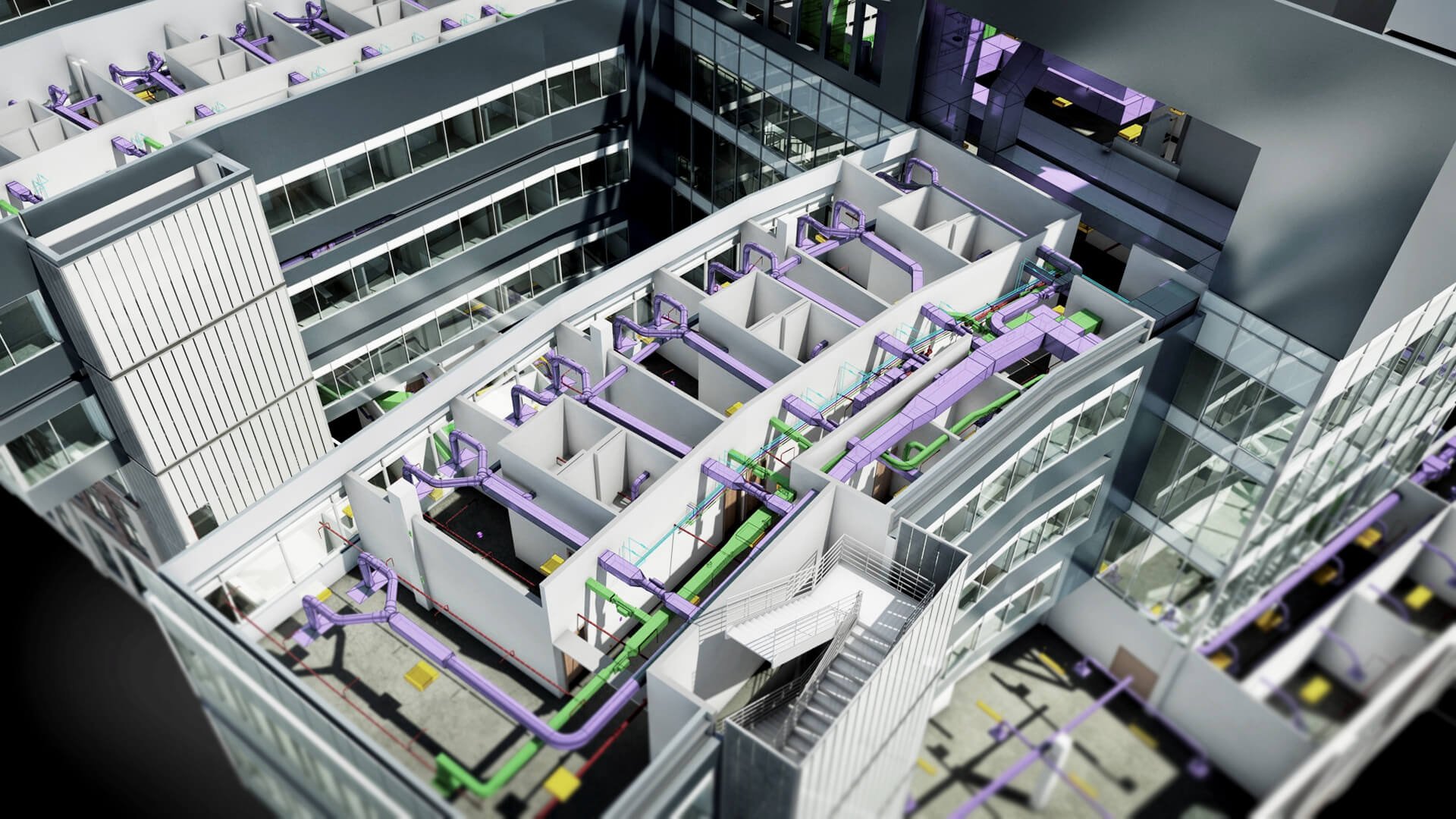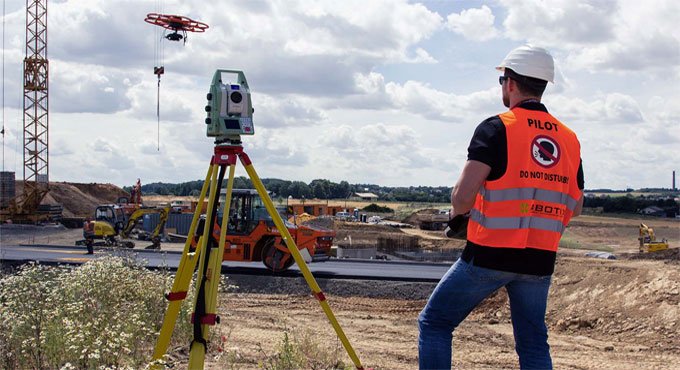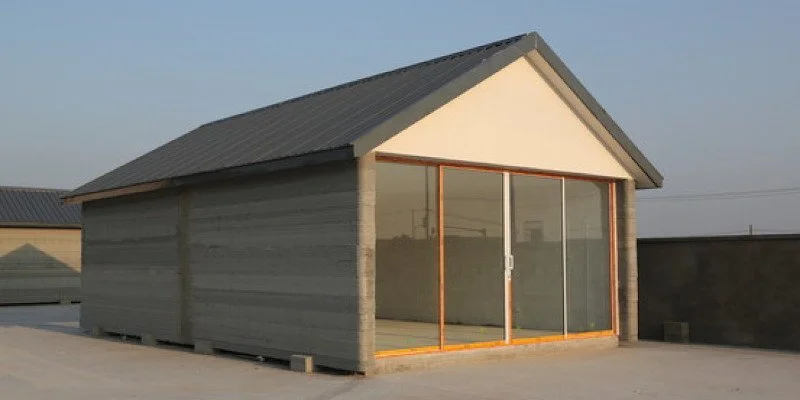The Future of Construction: Navigating Technological Advancements
The construction industry is undergoing a significant transformation, driven by a wave of technological innovations that are not just tools, but forces reshaping the sector's future. These advancements are pioneering new methodologies, redefining efficiency, safety, and sustainability in construction. Let's explore how these technologies are steering the industry into a new era.
Image courtesy of TDIndustries, using Autodesk’s Revit BIM Workflow
“Faced with increasing project complexity, sky-high stakeholder expectations and mounting pressure to deliver better builds – faster, TDIndustries stays focused on its core objective: delivering exceptional client satisfaction.
As one of the largest mechanical engineering and plumbing subcontractors for the Southwest U.S.’s building industry, the firm has evolved its processes and technology so that it can adapt to – and stay ahead of – the challenges of the changing engineering landscape.” Read more here.
1. Building Information Modeling (BIM): Redefining Project Planning
Building Information Modeling (BIM) represents a monumental shift in construction planning and execution. Far surpassing traditional blueprints, BIM provides a dynamic, 3D digital representation of a project, fostering unparalleled precision and efficiency. This technology is revolutionizing the way architects, engineers, and builders collaborate, making decision-making more streamlined and informed, and significantly reducing the margin for error in construction projects.
2. The Integration of Robotics and Automation
Robotics and automation are carving a new path in construction. From automated machinery handling repetitive tasks to drones surveying construction sites, these technologies are enhancing productivity while bolstering on-site safety. Automation in construction isn't just about mechanization; it's about creating smarter, safer, and more efficient building processes.
3. 3D Printing: A New Dimension in Construction
3D printing is pushing the boundaries of traditional construction techniques. This technology enables the crafting of complex, bespoke building components, allowing for more creative and flexible architectural designs. The adoption of 3D printing in construction signifies a move towards more agile, cost-effective, and innovative building methods.
Companies like SQ4D are even using 3D Printing Technologies and Concrete to build homes in ways we’ve never seen done before- in just two days.
Winsun claims to be able to 3d print this building in one day.
4. Augmented and Virtual Reality: A New Vision for Design and Planning
Augmented Reality (AR) and Virtual Reality (VR) are transforming the realms of design and planning in construction. These technologies allow for immersive project visualizations and simulations, enabling clients and builders to engage with a project before it materializes physically. AR and VR are not just visualization tools; they are gateways to more collaborative and intuitive design processes.
5. Internet of Things (IoT): Smartening Construction Sites
The deployment of IoT technology is turning construction sites into hubs of data-driven intelligence. Sensors and connected devices monitor various parameters, from equipment performance to environmental conditions, offering real-time insights that drive efficiency and safety. The IoT is proving instrumental in minimizing downtime and enhancing the overall management of construction projects.
6. Sustainable Technologies: Paving the Way for Eco-Friendly Construction
Sustainability is becoming a cornerstone in modern construction practices. The integration of green technologies, like energy-efficient systems and renewable materials, is indicative of the industry’s commitment to reducing its environmental footprint. Sustainable construction is not just about regulatory compliance; it's about building responsibly for future generations.
7. Artificial Intelligence (AI): The Future of Predictive Analysis in Construction
AI is set to revolutionize construction with its capability to analyze extensive data sets. Predictive analytics derived from AI can optimize construction schedules, resource management, and even predict potential project bottlenecks. AI in construction marks a shift towards more proactive and resilient building practices.
RoadtoVR.com took VR training course for operating. Then, he put it into practice in the field with a real 22-ton crane.
Conclusion: Embracing the Technological Renaissance in Construction
As we look towards the future, it’s evident that the construction industry is on the cusp of a technological renaissance. The integration of technologies like BIM, 3D printing, AR/VR, IoT, and AI is not just transforming the way we build; it’s redefining the very essence of construction. This era is about transcending traditional methods, embracing innovation, and building a future where technology and craftsmanship converge seamlessly.
The future of construction is here, and it's a fusion of technology, sustainability, and efficiency, shaping a smarter, greener, and more innovative industry.
Landis Enterprises is a Class-A Virginia Contractor specializing in Commercial Construction, Commercial General Contracting, Tenant Build-Outs, and Commercial Renovations.
To learn more about our services, call us at 1-833-215-7161 or visit our homepage. Your dream space is waiting to be transformed!






